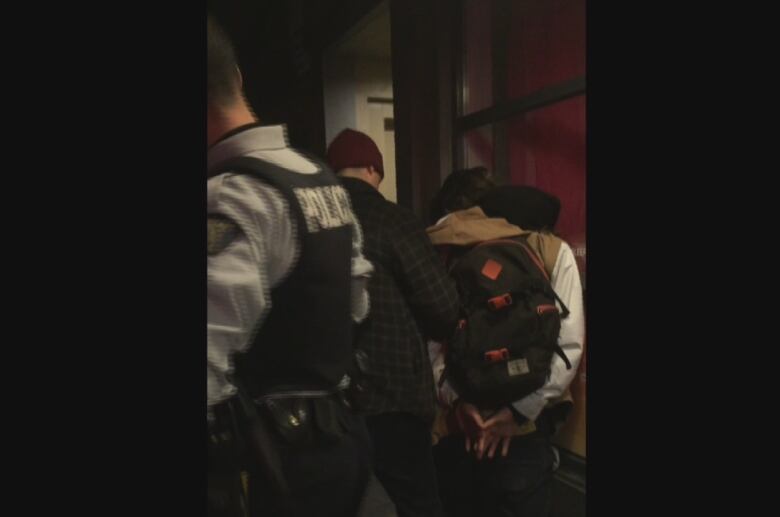Woman files complaint against Whistler RCMP over cellphone seizure
Mounties told her she was arrested for obstruction after refusing to provide her passcode
A Vancouver woman has filed a formal RCMP complaint, alleging police in Whistler seized hercellphoneafter she used it to film an arrest.
Valerie Connelly saidwhen she refused to give officers the passcode to her phone, she herself was arrested.
"There was no conversation and you can see it in the video that I have he just walked up and grabbed it out of myhands," said Connelly.
WhileMounties have told her she was arrested for obstruction,it's a case that raises concerns with civil rights activists.
'What are you doing?'
Connelly was walking through Whistler village Saturday, Nov. 19, when she took out her cellphone to record video of what appeared at first to be a fight between a group of men.
As it unfolded, she captured what she believed to be an undercover arrest, on camera.
"Not knowing what the circumstances were, I thought maybe this could wind up as evidence to help the police," said Connelly.
But as Mountieswere wrapping up the arrest, which she saidended "amicably," they noticed her recording the video.
"Just out of nowhere, one of the uniformed police officers walked up to me and grabbed my phone out of my hands. I said, 'What are you doing?' and he said, 'We're going to take that for evidence.'"

Connelly saidthe officer walked away with her device. She followed after him, askingwhat was going on. He told her to provide her cellphone passcode.
When she refused, shewas taken into custody.
"The one officer grabbed my arm, twisted it behind my back, handcuffed me, and said I was obstructing and that they were arresting me."
Connelly said she was was taken to the detachment, where police pressed her repeatedly to give up her passcode. Shecontinued to refuse and asked to speak with a lawyer.
She was eventually released, but without her phone, and said she was told she could come back to retrieve it during regular business hours.
Connelly saidshe has nothing against police,butfound the officers' behaviour 'disturbing.'
Police can seize phones, say RCMP
While Whistler RCMP didn't respond to CBC's request for comment directly, an emailfrom one of the officers to Connellysaidher phone was seized as part of an ongoing investigation and that she wasdetained for obstruction, butreleased without charges.
"E" Division, the provincial body governing RCMPin BC, responded to CBC's request for commentwith a statementbut wouldn't comment on the specifics of this case.
"In general terms, police have the authority to seize cellular phones and other video recording devices from the public, if those devices contain evidence that is not available through other means, and that evidence is at risk of imminent loss or destruction," said Sgt. Annie Linteau.
The policy director for the B.C. Civil Liberties Association questionedwhy officers felt the need to seize Connelly'scellphoneunder the circumstances as she has described them.
"From the outset, there is a concern that there may not have beenlegal authority for the confiscation," said Micheal Vonn.
Privacy rights vs. technology
As for whether civilians are required to providepasscodes to police, Vonn saidthe answer is a definitive'no.'
"If the phone is locked, there is no compulsion to unlock your phone for this purpose."
The issue has becomeacommon concern for many Canadians, as privacy rights intersect with technological toolsused inlaw enforcement.
"This is very much a question that is of great interest at the moment: Should therebe a court order process to demand passwords of people?"
Vonn alsoquestioned if the RCMP had the legal authority to keep her phone against her will.
"If they weren't allowed to legally seize the phone in the first place, they're certainly notallowed to keep it."
Vonnstressed that she doesn't know the specifics of the circumstances surrounding this particular case.













_(720p).jpg)


 OFFICIAL HD MUSIC VIDEO.jpg)
.jpg)



























































































